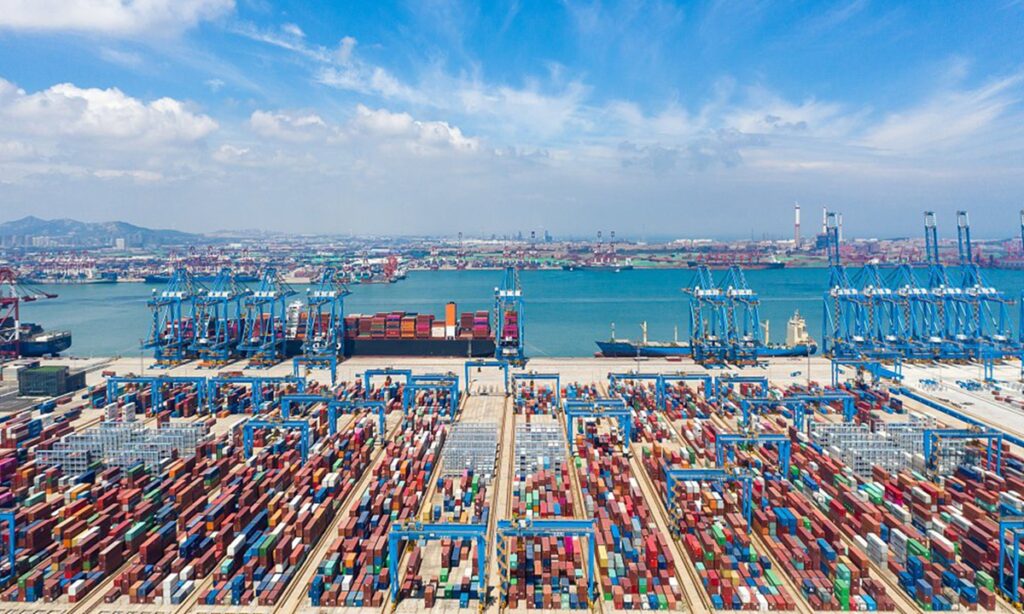Economy continues to recover, refuting foreign hype
Chinese experts and officials have affirmed that the Chinese economy is continuing to recover and improve, serving as a crucial driver for global economic growth, while speculations by foreign media regarding a slowdown in China’s economic growth are unfounded and contradict the actual situation.
During the meeting, Li emphasized continued efforts to expand domestic demand, upgrade traditional industries, deepen reform and opening-up and attract foreign investment.
Efforts should be made to expand policies to promote consumption and investment, boost bulk consumption, mobilize private investment, and push forward major projects’ investment, Li said.
Li stressed the need to accelerate the transformation and upgrading of traditional industries through new technologies and new business models.
Li also stressed the need to deepen reform and opening-up, carry out a new round of state-owned enterprise reform, optimize the development environment for private enterprises and attract foreign investment more effectively.
The Chinese economy has continued its recovery trend and showed overall improvement, remaining an important engine for global growth, a Chinese Foreign Ministry spokesperson said on Wednesday, refuting Western media hype about China’s economic slowdown putting the world’s economic development at risk.
Spokesperson Wang Wenbin said that China has the confidence, conditions and ability to achieve its annual economic and social development goals, push the giant ship of the Chinese economy into a broader future, and continue to provide a steady driving force for world economic recovery and growth.
A small number of Western politicians and media outlets amplified and hyped the phased problems in China’s post-epidemic economic recovery process, and they will eventually be hit in the face by reality, Wang noted.
Wang said that a slew of data has demonstrated that the Chinese economy has strong resilience, great potential and vitality and the fundamentals of its long-term sound growth remain unchanged.
In the first half of this year, China’s GDP grew by 5.5 percent year-on-year, which was significantly faster than last year’s 3 percent. It also outpaced that of the US by more than 3 percentage points. The IMF recently predicted that China’s economy will grow by 5.2 percent this year, contributing one-third of global growth.
Song Guoyou, a deputy director of the Center for American Studies, Fudan University, told the Global Times on Wednesday that the claims made by certain Western countries and media outlets are biased and lack objectivity.
“From a data perspective, China’s economic development continues to maintain a high growth rate, surpassing the international average. Although some sectors may have experienced temporary difficulties leading to a slowdown in growth, the growth rate still far exceeds the development speed of the US and Europe,” Song said.
The Chinese government has introduced numerous policies to address the current economic challenges, and it will take time for these policies to take effect. Therefore, the hype displayed by the West, particularly the US, regarding China’s temporary economic slowdown is excessive and lacks objectivity, Song added.
Recently Chinese authorities have implemented a range of targeted measures to stimulate growth, including expanding consumption, promoting the private sector and attracting foreign investment. These measures have received positive responses from both domestic and foreign investors.
China’s top economic planner, the National Development and Reform Commission, issued guidelines on Wednesday to upgrade Shanghai’s Hongqiao international hub.
The guidelines stressed that support will be given to eligible enterprises in the Hongqiao Business District to conduct trials of the policy of integrating domestic and foreign currency funds for multinational companies.
According to the policy, multinational corporations are allowed to conduct overseas centralized transactions for their foreign subsidiaries within China, gaining more autonomy over the fund exchange process.
This measure can facilitate foreign businesses to operate in China and can also be seen as China’s support and continuation of globalization, Cao Heping, an economist at Peking University, told the Global Times on Wednesday.
“It will greatly facilitate the development of foreign business in China, allowing global and Chinese companies to compete and cooperate on the same platform,” Cao said.
As a testament to the confidence of foreign investors in China’s development, several CEOs from foreign companies have recently visited China to meet with Chinese officials and express their unwavering belief in the country’s growth.
For example, Vimal Kapur, CEO of Honeywell, said that China is an important base for research, production and sales for the company, in a meeting with Minister of Industry and Information Technology Jin Zhuanglong on Tuesday.
Kapur said that Honeywell plans to deepen cooperation in China in the fields of intelligent manufacturing, emission reduction technology, and industry transformation and upgrading.
Lars Fruergaard Jørgensen, CEO of Novo Nordisk, on Tuesday expressed the company’s commitment to utilizing its core capabilities to lead and promote innovative drug research and development in Tianjin, at a meeting with local officials.
The net inflow of foreign direct investment to China rebounded in July, reaching the second-highest level in nearly a year, officials from the State Administration of Foreign Exchange said on Tuesday.




